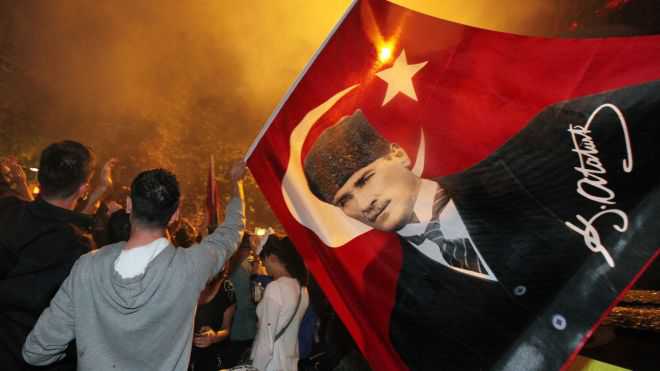Regime change in Turkey
Last week I took part in two panel discussions titled “What does Turkey think?” First of them took place in Vienna at a meeting jointly organized by the Bruno Kreisky Forum, the European Stability Initiative and the Center for Liberal Strategies (Sofia).
The second took place as part of “New Directions for Turkish-Greek Engagement in the Middle East and Balkans” conference jointly organized by Bahçeşehir University and the University of Oxford in Istanbul. During both I felt the need to talk about regime change in Turkey.
The Republic of Turkey is indeed in a process of regime change through piecemeal reforms led for the first time in its history by an elected government. It is engaged in the process of transition from a kind of electoral democracy where the reigns of power are held by the military and civilian bureaucracy committed to a highly authoritarian form of secular nationalism called Kemalism to a kind of liberal and pluralist democracy defined roughly by the Copenhagen political criteria of the European Union. It is hoped and expected that this process will culminate in the consolidation of democracy by the adoption of an entirely new constitution, the first steps toward which were taken by Parliament recently.
There are a multitude of factors that account for the fact that the transition is proceeding in “slow motion” and often takes two steps forward and one step back. The main internal factors are the following:
The fierce opposition coming from state elites, the holders of power of the old regime, which has assumed the form of military and judicial coup attempts against the elected government.
The resistance to reforms by political parties committed to Kemalist secularism or nationalism.
The loyalty of an important part of civil society to the old regime or its distrust of the ruling Justice and Development Party (AKP) leading the process of regime change.
The violent insurgency led by the Kurdistan Workers’ Party (PKK).
And the government’s lack of a clear idea of what needs to be done, and thus its “muddling through” kind of leadership.
The main external factor that has affected the pace of regime change is surely the EU’s strong support for reforms beginning with the declaration of Turkey’s candidacy for membership in 1999, which practically disappeared in 2005, soon after the start of accession negotiations due to governments opposing Turkish membership coming to power in France and Germany, and Greek Cyprus trying to impose its conditions on the reunification of the island, once it joined the union.
Where, then, does Turkey stand today in this process of regime change? As described best by the annual reports of the European Commission on Turkey’s progress towards membership, the next of which is due in 10 days’ time, there has been substantial progress. Turkey, especially since the coming to power of the AKP government, is moving towards a liberal and pluralist democracy. Perhaps the main assurance of this progress is its open economy, achievement of macroeconomic stability and growth, leading to the impressive tripling of per capita income, which explains the electoral successes of the AKP government. Yes, there are risks involved, but the economy is expected to continue to grow.
There are surely many problems experienced in the sphere of democracy, perhaps the most serious problem being legal provisions that criminalize even non-violent views. The provisions of the Counterterrorism Law (TMK) and the Turkish Penal Code (TCK), which restrict freedom of expression, need to be amended urgently. Despite legal restrictions on freedom of expression and government pressure on the media, there exists a broad and lively public debate on major political problems making the country an increasingly open society.
Although Turkey has not yet fully established democratic control over the military significant changes have taken place in that direction. There are many problems involved in establishing the rule of law, but some steps have been taken even in that sphere. The denial of Kurdish identity has come to an end, and modest steps toward its recognition have also been taken. Pro-Kurdish parties are in power in many municipalities of the predominantly Kurdish regions since 2004, and represented in Parliament since 2007. It is strongly hoped that the recently disclosed secret negotiations, in progress since 2006 between the state authorities and the Kurdistan Workers’ Party (PKK) will finally succeed in bringing the armed insurgency to an end. It is not only the vast majority of Turks, but also the Kurds who are now raising their voices against PKK violence.
With its increasingly open economy and society Turkey is on its way to consolidate democracy on EU norms. The EU may be severely divided over the issue of Turkish accession, and negotiations between Turkey and the EU may have effectively come to a halt, but partly due to the societal forces released by the EU accession process, Turkey is clearly moving towards convergence with the EU in both economic and political terms, and also even in the sphere of foreign policy, a topic which requires separate treatment.
Sahin Alpay, Zaman
via Regime change in Turkey.


Leave a Reply